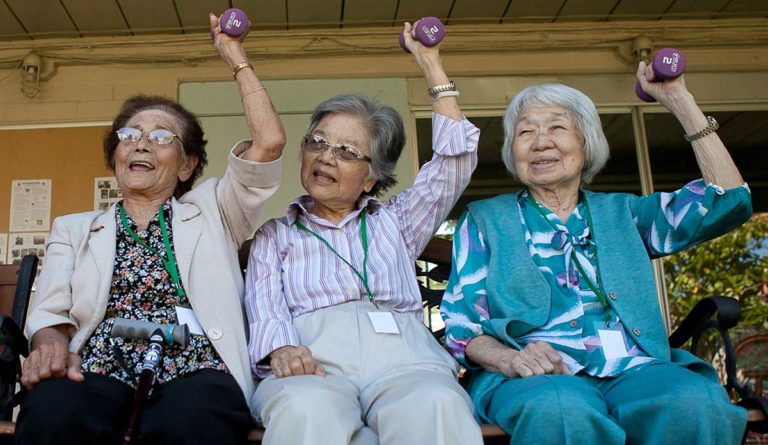Maximizing Healthy Aging through Daily Activities
Older adults who engage in an array of daily activities like socializing, pursuing hobbies, exercising, or volunteering report better physical and mental health.

Read Time: 4 minutes
Published:
Global health faces its largest challenge to date—a rapidly aging population with increasingly complex health problems. The National Institutes of Health (NIH) predict that the percentage of adults aged 65 and older will double from 8.5% to 17% by 2050. Existing healthcare systems will be stretched to support such a large population. A simple way to improve health outcomes is to encourage older adults to strategically choose their daily activities. Our research examines the health benefits of activity engagement for older adults.
The American Association of Retired Persons (AARP) found older Americans spend most of their time socializing, pursuing hobbies, exercising, or engaging in community improvement (e.g., volunteering). These four activities have marked mental and physical health benefits. Social older adults feel happier and are less likely to feel isolated and lonely, both of which are linked to increased mortality. Physically active older adults are less likely to experience serious injuries that lead to disability. Engaging in leisure and productive activities is associated with greater quality of life and a sense of purpose. Each of these types of activities improves mental and physical well-being, but does one type reign supreme?
In our study, we asked whether engaging in specific activities maximized healthy aging. We looked at 400 older adults’ participation in social, physical, leisure, and productive activities using a nationally representative dataset, the Health and Retirement Study (HRS). The HRS includes health and daily activity information of over 38,000 U.S. adults age 50 and older. We found participants who engaged in an array of activities reported better physical and mental health than those who focused on just one type of activity. A closer look revealed personality, finances, and education played a significant role in activity choice. People who were more open-minded, had more knowledge about activities, and could afford to participate were more engaged.
To promote widespread healthy aging, the barriers to engaging in new activities must be understood. Older adults often raise concerns about lacking social and community support, as well as accessible activity options.
Older adults also need to know about the opportunities within their own communities….through mailing campaigns, online forums, and community events.
One of our most promising findings was the role education played in activity engagement. Our results suggest seeking knowledge may lead people to learn more about their health. Though we cannot provide formal education to all older adults, making health information more accessible and encouraging older adults to become more health literate is manageable. Sharing information about the importance of engaging in different types of activities can provide older adults with the necessary knowledge to pursue healthier habits. Older adults also need to know about the opportunities within their own communities. We recommend sharing health information and local activities through mailing campaigns, online forums, and community events. We further suggest using trusted aging-centric organizations, such as the AARP, to advertise these resources as they have the ability to connect like-minded members en masse. Connecting older adults through organizations like these creates a support network for those who feel they lack the social support to try new things.
Communities can also reduce barriers for those looking to stay active. Providing accessible transportation and subsidizing activity costs so people with fixed incomes can attend are two ways to support engagement. Communities should also their share successful solutions so others may follow suit. One such global effort by the World Health Organization identifies “age-friendly communities” and provides a platform for the exchange of ideas.
With national and state-level cuts to Social Security and Medicare, financial support for healthy aging continues to dwindle. Now more than ever individuals and communities must take their health into their own hands. Our study shows small changes to daily habits can improve older adults’ quality of life nationwide.
Feature image: Salvation Army USA West, adultday-101, used under CC BY 4.0





